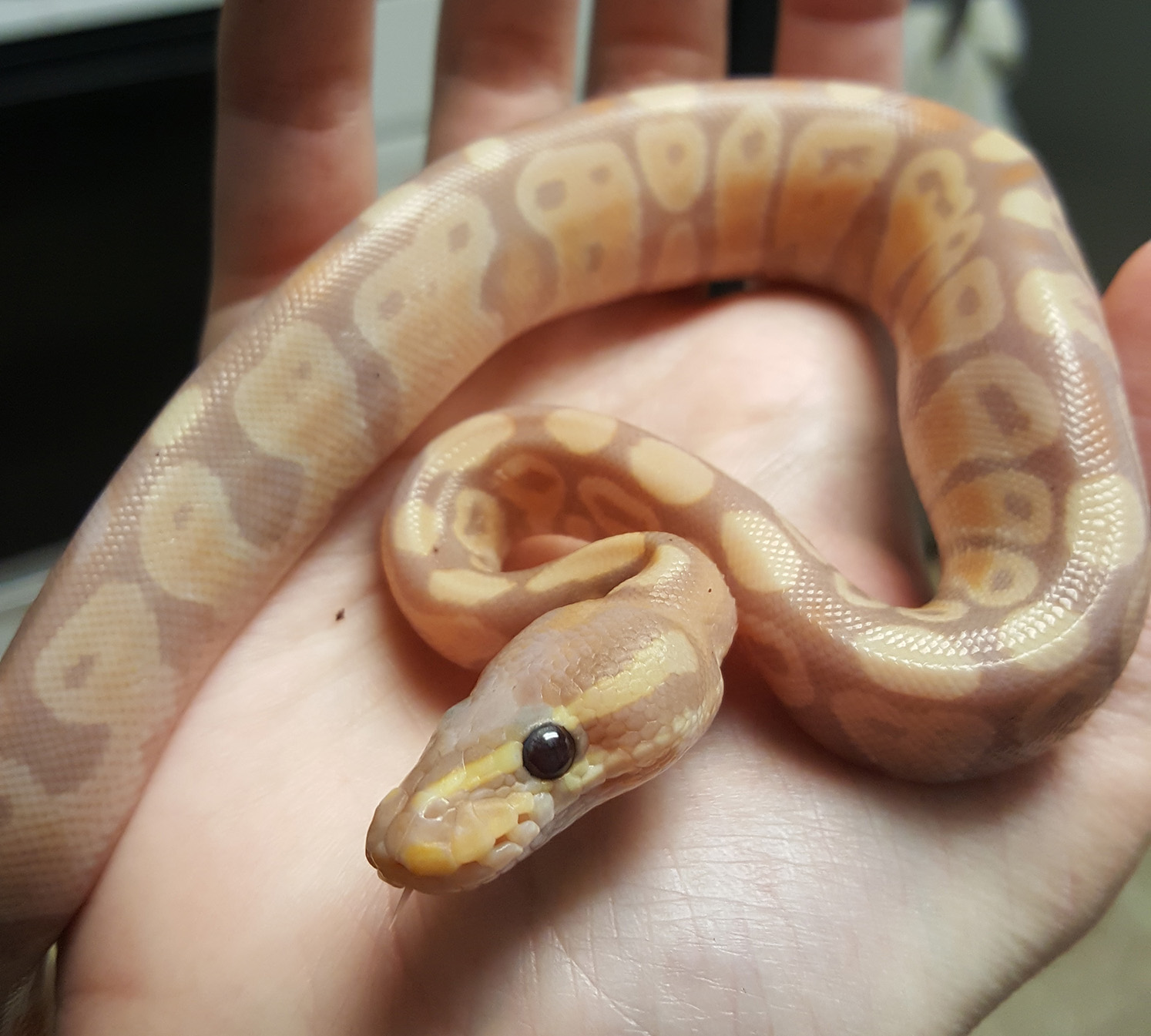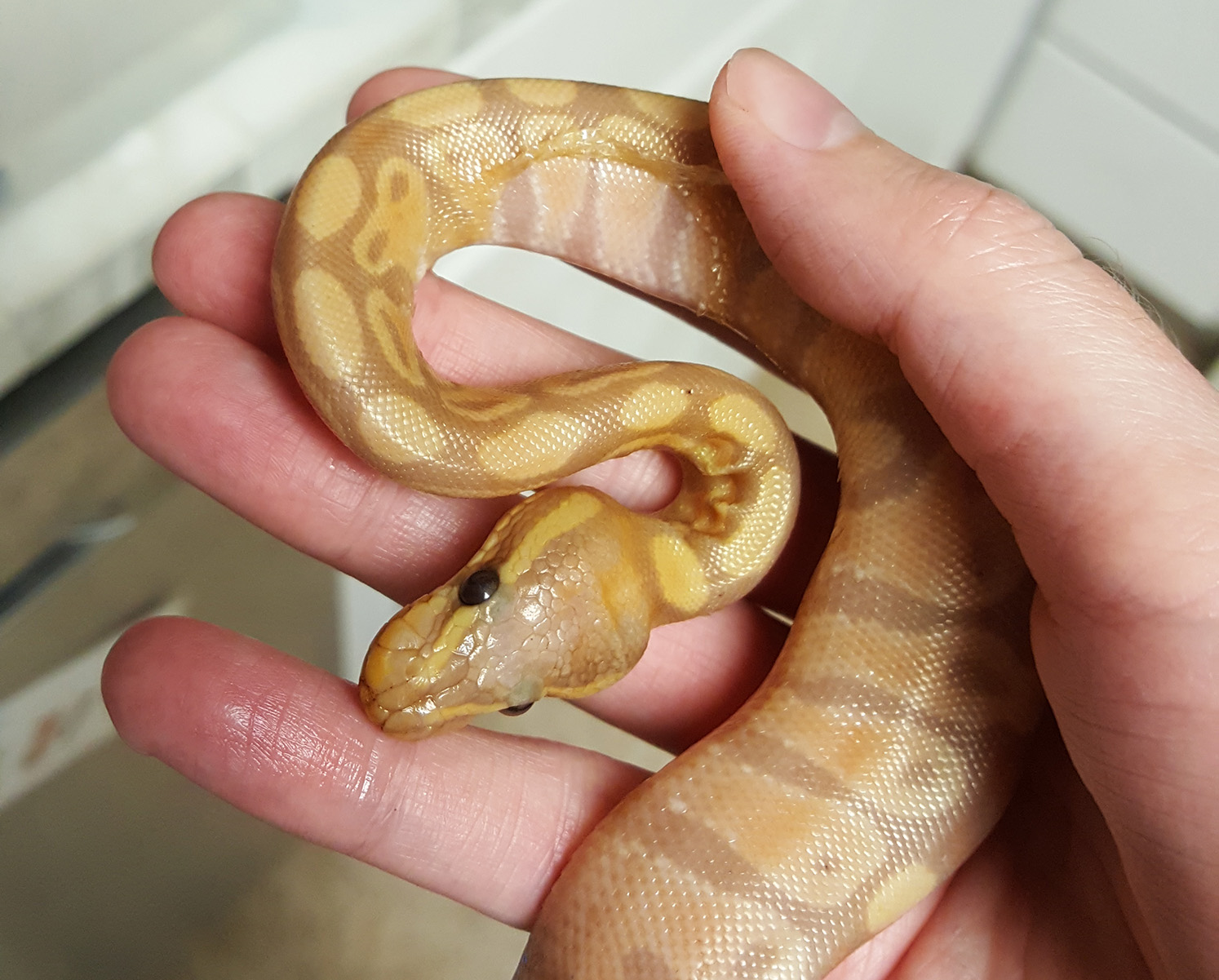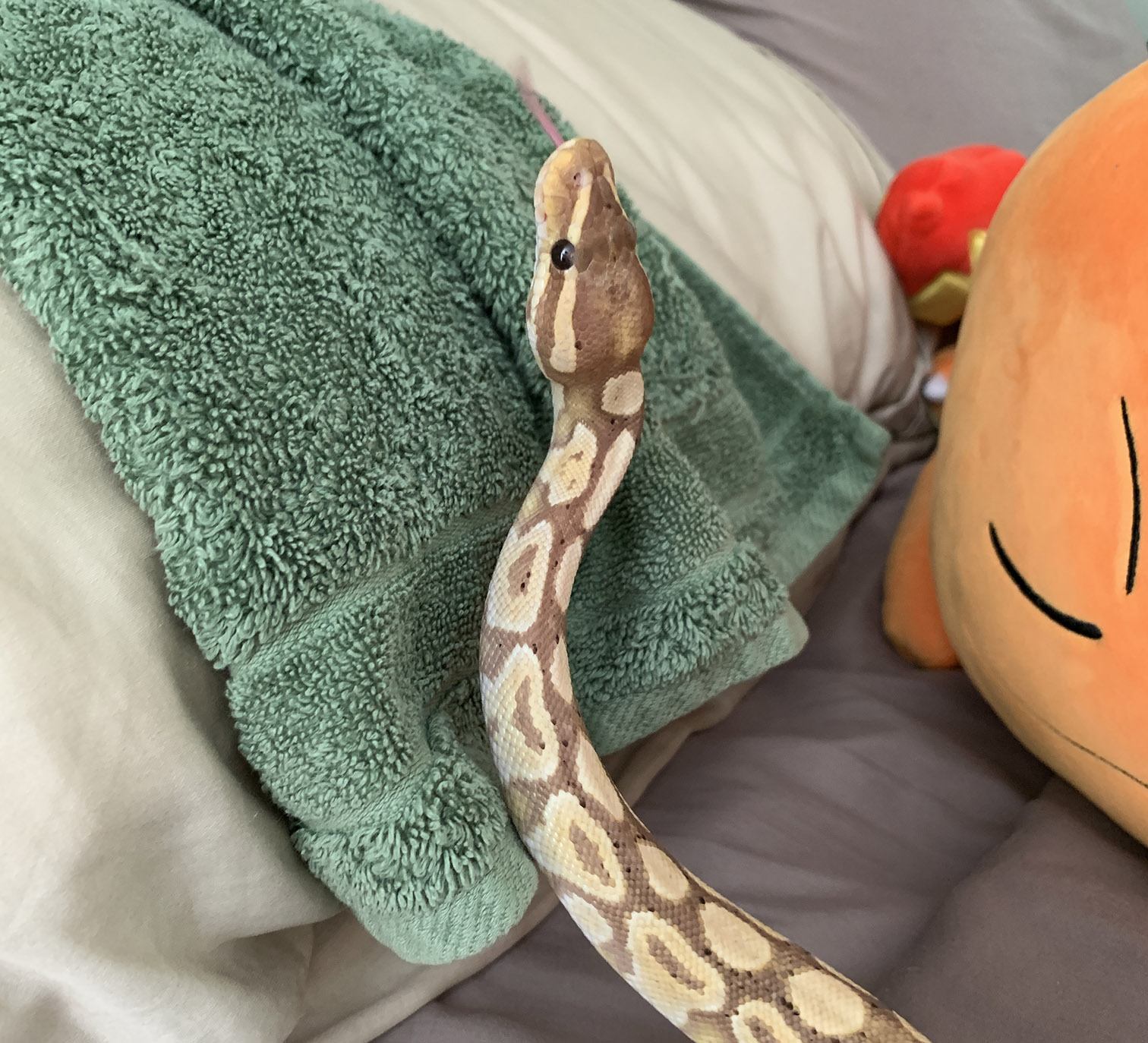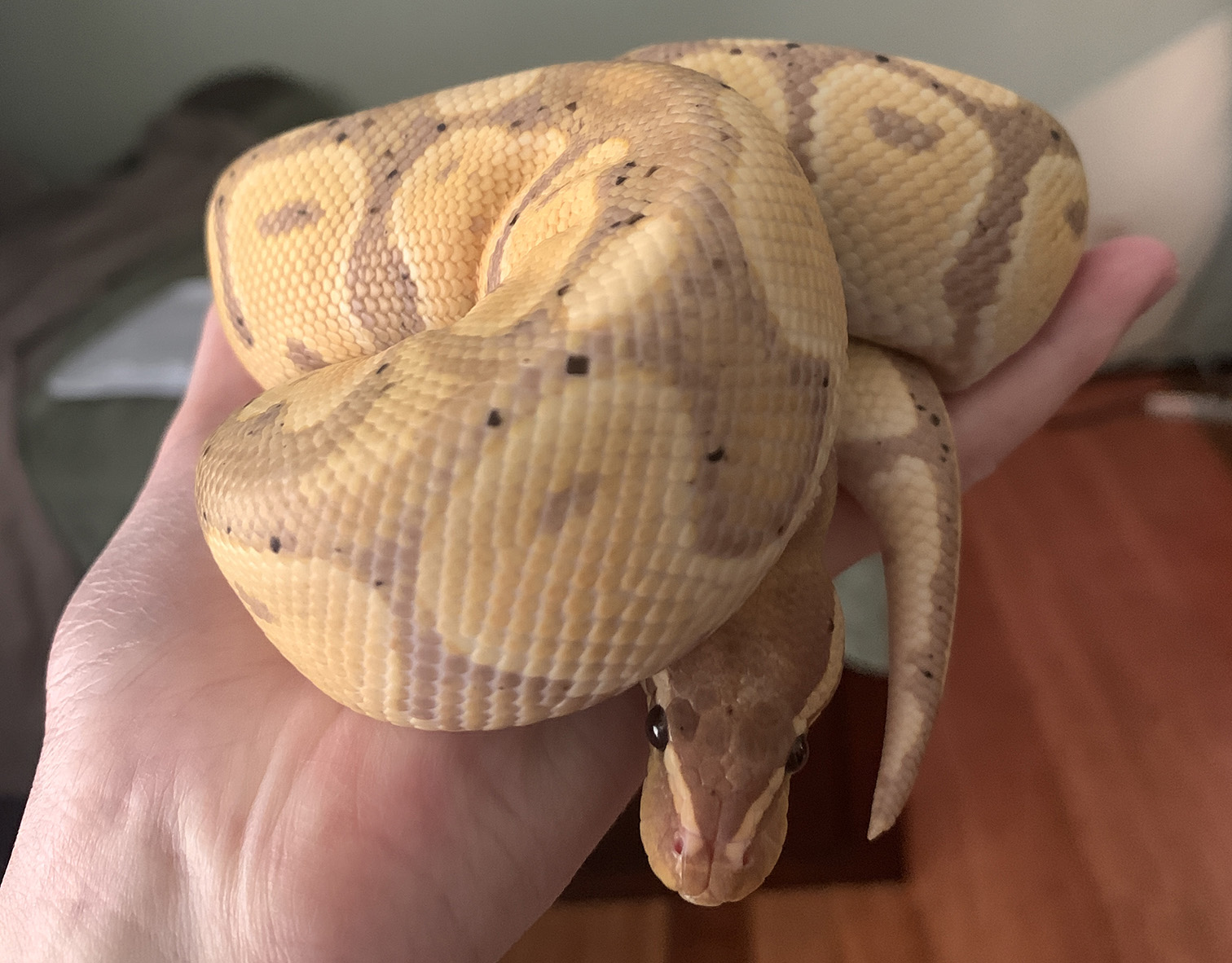Meet Rudy, our handsome young banana ball python. We obtained him from a local pet store in December of 2017. He is special needs and has significant neurological issues that make his movements different from other ball pythons and make it difficult for him to aim properly when feeding. When he flicks his tongue, it doesn’t always go back into his mouth, and it doesn’t always fork, which undoubtedly limits his sensory perception.
The store owner said that he believed the previous owner attempted force-feeding Rudy and injured him. However, the previous owner happened to stop by the store one day and said that Rudy had showed the same neurological characteristics when they’d gotten him from the store, and they’d only returned him when he suddenly stopped eating. We were reluctant to ask about him because the sudden halt in feeding and the neurological issues were both characteristic of Inclusion Body Disease (IBD) and some other very contagious, very fatal viruses that would be harmful to our collection. However, one of the employees at the store managed to get him to eat twice, on his own, and we took him home.
Rudy had numerous stuck sheds, and it took a lot of work and time to get him cleaned up. He took it all with patience and good nature, although we could tell he hated every minute of it. It was also surprisingly difficult to switch him over to frozen-thawed mice, because he very much preferred live in spite of his horrible aim.
One of our reptile veterinarians examined Rudy and said that his neurological issues did not seem to come from trauma—it was more likely he was born that way. From his handsome banana appearance, we came to the conclusion that Rudy had been line-bred and his neurological issues stemmed from inbreeding.
In spite of his alarming habit of trying to cruise straight onto the floor, with no regard to heights whatsoever, Rudy is very charming and gentle. He does have problems feeding—he wants to strike at his food and is most interested in it when it is moving around. However, both of these things cause him to miss, and he becomes visibly discouraged and less interested in eating. He can generally be coaxed after a few tries, and most of the time gets his food down in one try. Sometimes, he will try to eat the mouse sideways and we will have to start all over again. This, of course, happens with other snakes from time to time, but it is much more frequent and debilitating with Rudy. He is a constant reminder to us of the importance of selection when breeding animals, and the importance of out-crossing (that is, introducing an unrelated snake into a line for breeding).
Having said that, Rudy did not perish of disease in his first year, eats regularly, and has grown significantly since we received him. His biggest challenge now is that, in spite of his neurological issues, he is a perfectly healthy growing male, and he is now becoming more roamy and an even more finicky eater because, we believe, he is thinking about girls.




